Q. Good morning, Dr. Judy. You have talked with us about the safety of Coenzyme Q10 supplements, and you have told us that the formulation of the supplement is decisive for the absorption of Coenzyme Q10. Shouldn’t we talk today about why we adults need daily Coenzyme Q10 supplements?

Coenzyme Q10 molecules are redox molecules. Ubiquinone can accept electrons, and ubiquinol can donate electrons. Oxireductase enzymes catalyze ubiquinone’s accepting electrons. Free radicals take electrons from ubiquinol and become stable.
A. Yes, indeed. Coenzyme Q10 is very much needed and, at the same time, very little known by most people. Our bodies produce Coenzyme Q10 –called ubiquinone –, and Coenzyme Q10 is found in all of our cells except the red blood cells. That should tell us something.
We produce Coenzyme Q10 primarily because our cells need it for the process of ATP energy production. As a secondary function, then, the reduced form of Coenzyme Q10 — called ubiquinol, to distinguish it –, functions in the cells and in the blood as a fat-soluble antioxidant, neutralizing harmful free radicals.
But, as you know, the research shows that our bodies produce less Coenzyme Q10 as we age. Once we pass our 20s, our own production of Coenzyme Q10 declines. This decline in production is part of the ageing process.
Q. So, Coenzyme Q10 is like a vitamin in that we need it, but it is more than a vitamin in that the mitochondria in our bodies’ cells produce it for us?
A. Yes, that is a fair statement. In the classical definition, vitamins are not produced in the body. But, think, our cells produce less and less Coenzyme Q10, and we cannot make up the difference by eating more or eating better. We need a good daily Coenzyme Q10 supplement.
Luckily for us, there is a commercial fermentation process that produces the organic Coenzyme Q10 raw material in a crystalline form that can be re-formulated to crystal-free high-absorption Coenzyme Q10 supplements.
Q. Good. Let’s be precise. What, exactly, is the Coenzyme Q10 needed for? You have mentioned energy production and anti-ageing. What else?
A. Right. Coenzyme Q10 is important for anyone with a low-energy syndrome, chronic fatigue, fibromyalgia, all the variations of low-energy syndrome. And Coenzyme Q10 can clearly help to maintain the heart function of healthy elderly people.
Professor Alehagen has demonstrated that in his four-year KiSel-10 study.
That’s the key: heart health. Think about it. The heart muscle is working all the time. It needs energy constantly.
Dr. Svend Aage Mortensen showed that daily Coenzyme Q10 supplements can improve the symptoms and the survival of chronic heart patients. That’s what his Q-Symbio study was all about.
Dr. Mortensen – he was my friend and fellow researcher — used Coenzyme Q10 supplements as an adjunct treatment to the conventional heart failure treatment. What he was doing was preventing the patients from falling into a condition that he called “the energy-starved heart.”
He also used Coenzyme Q10 supplements as a bridge to heart transplantation. He found that a funny thing happened. Many of the patients scheduled for heart transplantation could be taken off of the transplantation list after supplementing with Coenzyme Q10.
Dr. Mortensen published the results of the Q-Symbio study in the American College of Cardiology’s specialty journal Heart Failure. I don’t think his article got the attention that it deserves.
Q. Let’s make a list, Dr. Judy. What, specifically, do you know that Coenzyme Q10 does for people?
A. Okay. A summary. Remember, Coenzyme Q10 is essential for the production of 95% of the energy made by the body. Very important.
- Significantly improves heart function in chronic heart failure patients.
- Maintains healthy heart function in ageing live-at-home individuals.
- Lowers high blood pressure moderately.
- Speeds up recovery from heart surgery and other surgery.
- Reduces the levels of bio-markers for chronic inflammation.
- Improves the quality of life for people with low-energy syndromes.
That’s it. That’s the safe list. I would add that both Dr. Karl Folkers and I thought that Coenzyme Q10 could play a role in the prevention and treatment of certain forms of cancer. But we could never get the funding for a really big cancer study.
Q. Cancer. You are making me think. There have been studies that show that some cancer drugs affect the body’s synthesis of Coenzyme Q10 and damage the heart muscle. Adriamycin comes to mind, isn’t that right?
A. You are right. Adriamycin is a good example. By the way, that is the trade name. The drug name is doxorubicin. Adriamycin is a good example of a chemotherapy drug that can cause changes in heart muscle function and even cause heart failure. Coenzyme Q10 supplementation has been shown to prevent Adriamycin-induced heart failure.
Cancer patients doing chemotherapy need to have a good cardiologist to advise them about protecting the heart muscle.
Q. And, Dr. Judy, thinking of drug interference with Coenzyme Q10 bio-synthesis, I am surprised that we have left this topic so late in the interview: what do you say about statin medications and Coenzyme Q10?
A. Yes, statins. We have an amazingly high number of middle-aged and elderly people taking statins in this country. The statins are effective at inhibiting the body’s production of cholesterol, and, to the extent that cholesterol is implicated in the development of atherosclerosis, that is a good thing.
But … <pause> … but anyone taking a statin medication should be talking to his or her cardiologist about the proven fact that statin medications also inhibit the body’s synthesis of Coenzyme Q10.
The heart muscle cells … and other cells too … need that Coenzyme Q10. That is known beyond a doubt. The research is clear about that.
Q. You talked about Dr. Mortensen’s theory of the energy-starved heart. Might one adverse effect of taking statin medications be the starving of the heart for Coenzyme Q10?
A. It certainly must be considered. Dr. Okuyama and Dr. Langsjoen and others have speculated that the use of statin medications might be stimulating the development of atherosclerosis and heart failure. Essentially, they are asking, is using statins a good thing overall?
We know that statins inhibit the body’s synthesis of Coenzyme Q10, inhibit the body’s synthesis of vitamin K2, and inhibit the body’s synthesis of selenoproteins. Could it be that we are reducing the number of heart attacks with statin medications but, at the same time, we are increasing the number of cases of heart failure?
But, there is hope on the horizon. The FDA has approved two new drugs that lower the plasma LDL significantly without interfering with Coenzyme Q10 synthesis and that have none of the adversities of the statin drugs. However, it will take years before these drugs will impact the anti-cholesterol market.
Q. If Dr. Okuyama and Dr. Langsjoen are correct, it will be one of the big ironies of modern medical treatment.
A. Well, it can’t be ruled out. It needs to be investigated. Dr. Okuyama and Dr. Langsjoen have laid out the pharmacological mechanisms for the statins inhibiting synthesis of Coenzyme Q10, vitamin K2, and selenoproteins.
My thought is, if you are taking a statin medication, you want to be thinking seriously about taking a good Coenzyme Q10 supplement every day.
Really, if you are going into middle age or into your senior years, you want to think about finding a good Coenzyme Q10 supplement.
Q. Okay, Dr. Judy, that is the last word. Thank you for sharing your knowledge of the research literature with us.
A. Actually, if I could just add one more thought. There are claims out there on the Web that people over the age of 40 need a ubiquinol supplement rather than a Coenzyme Q10 supplement. I don’t agree. I think those are marketing claims not backed up by scientific research.
Think about it. The elderly heart failure patients in Dr. Mortensen’s Q-Symbio study responded well to daily ubiquinone Coenzyme Q10 supplements. The elderly citizens in Dr. Alehagen’s KiSel-10 study, all of them 70 or older, they responded well to daily ubiquinone Coenzyme Q10 supplements. And those were well-designed scientific studies.
Read our key article on CoQ10 as adjuvant therapy for heart failure
Sources
Alehagen, U., Johansson, P., Björnstedt, M., Rosén, A., & Dahlström, U. (2013). Cardiovascular mortality and N-terminal-proBNP reduced after combined selenium and Coenzyme Q10 supplementation: a 5-year prospective randomized double-blind placebo-controlled trial among elderly Swedish citizens. International Journal of Cardiology, 167(5), 1860-1866.
Judy, W. V., Stogsdill, W. W., & Folkers, K. (1993). Myocardial preservation by therapy with Coenzyme Q10 during heart surgery. The Clinical Investigator, 71(8 Suppl), S155-S161.
Judy, W. V., Stogsdill, W. W., Judy, D. S., & Judy, J. S. (2007). Coenzyme Q10: Facts or Fabrications? Natural Products Insider. Retrieved from http://www.zmc-usa.com/docs/CoQ10_Facts_or_Fabrications.pdf.
Judy, W. V. & Folkers, K. (1993). Management of chronic fatigue syndrome patients with CoQ10. 8th. Intl. Symp. Biomed. and Clin. Aspects of CoQ, 55.
Mortensen, S. A., Rosenfeldt, F., Kumar, A., Dolliner, P., Filipiak, K. J., Pella, D., & Littarru, G. P. (2014). The effect of Coenzyme Q10 on morbidity and mortality in chronic heart failure: results from Q-SYMBIO: a randomized double-blind trial. JACC. Heart Failure, 2(6), 641-649.
Okuyama, H., Langsjoen, P. H., Hamazaki, T., Ogushi, Y., Hama, R., Kobayashi, T., & Uchino, H. (2015). Statins stimulate atherosclerosis and heart failure: pharmacological mechanisms. Expert Review of Clinical Pharmacology, 8(2), 189-199.
Rosenfeldt, F. L., Haas, S. J., Krum, H., Hadj, A., Ng, K., Leong, J., & Watts, G. F. (2007). Coenzyme Q10 in the treatment of hypertension: a meta-analysis of the clinical trials. Journal Of Human Hypertension, 21(4), 297-306.
Rosenfeldt, F., Marasco, S., Lyon, W., Wowk, M., Sheeran, F., Bailey, M., & … Pepe, S. (2005). Coenzyme Q10 therapy before cardiac surgery improves mitochondrial function and in vitro contractility of myocardial tissue. The Journal Of Thoracic And Cardiovascular Surgery, 129(1), 25-32.
Disclaimer: The information presented in this interview is not intended as medical advice and should not be construed as such.


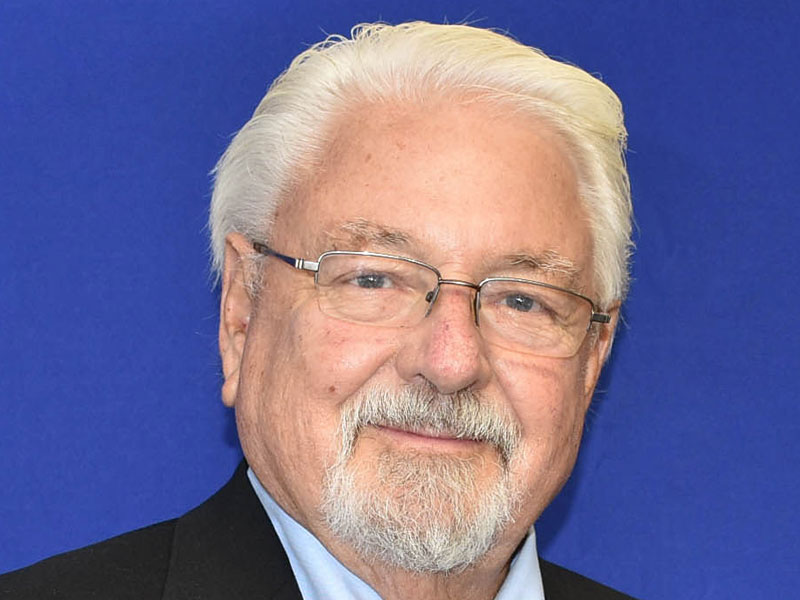
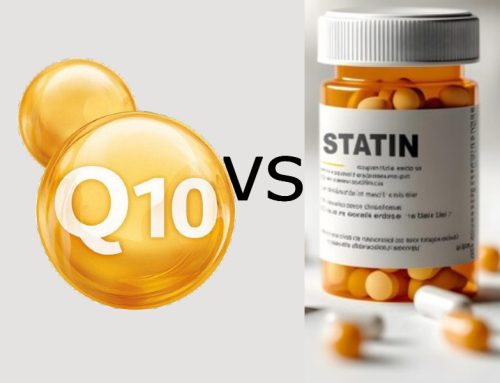
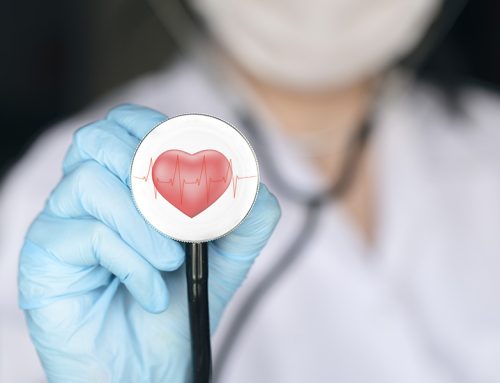


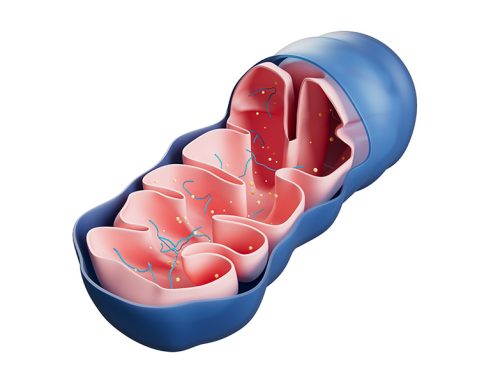
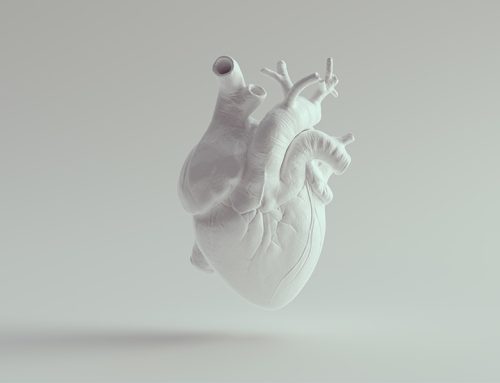
Leave A Comment